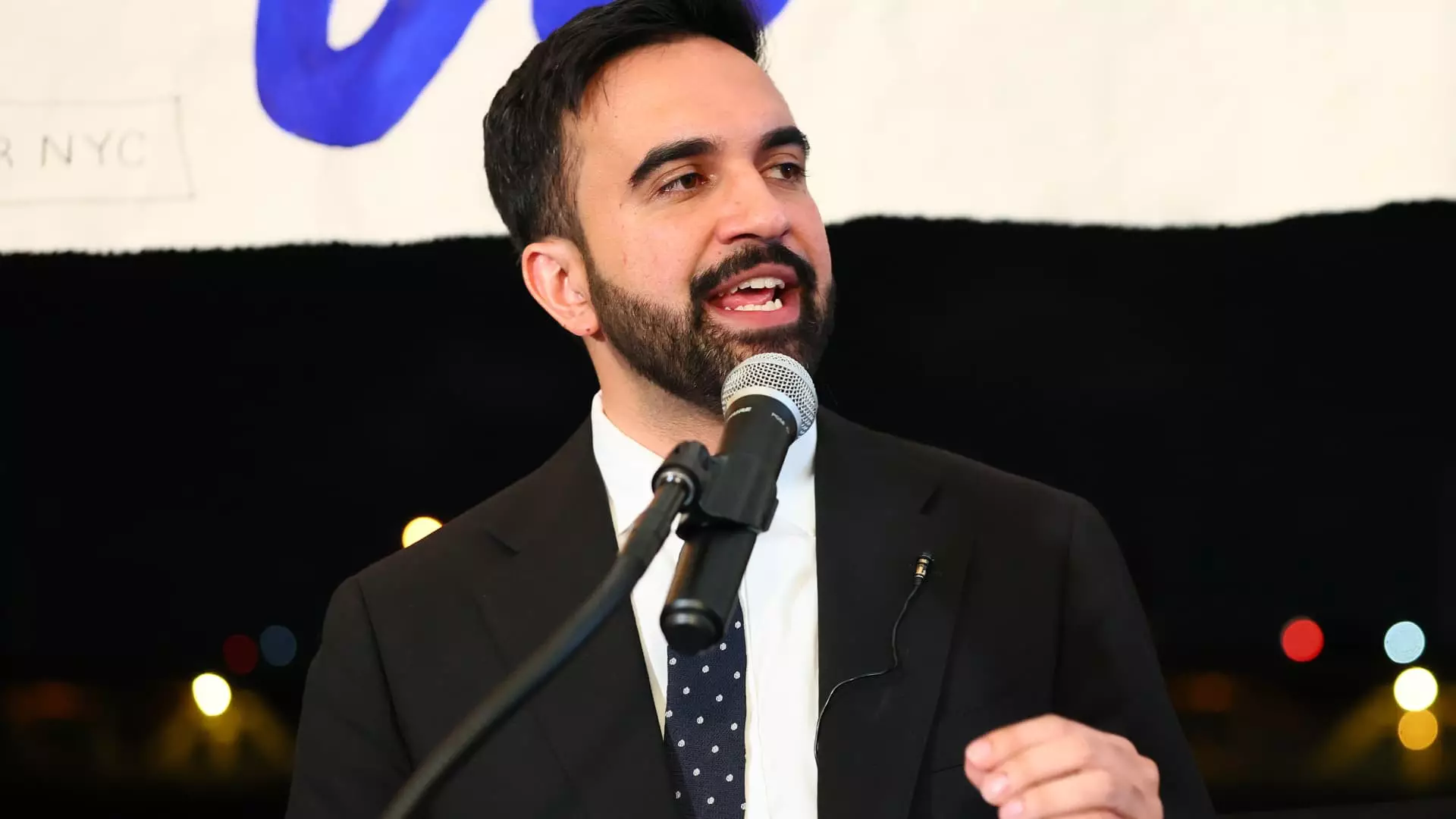In a shocking turn of events, shares of Flagstar Bank plummeted by 6% following the apparent success of Zohran Mamdani in the New York City Democratic mayoral primary. The recent history of New York Community Bancorp, now rebranded as Flagstar, has seen a series of turbulence, most recently tied to its extensive real estate portfolio. It’s evident that investors are assessing the implications of a Mamdani-led administration, which may change the landscape for property regulations significantly in ways that could ripple through the financial sector.
In March 2024, the involvement of former Treasury Secretary Steven Mnuchin, who led a $1 billion investment in Flagstar, seemed to breathe new life into the bank. However, the fragile nature of its recovery raises questions. The combination of a more regulatory environment and economic pressures threatens the profit trajectory that many shareholders believed was on the mend. With Mamdani poised to win the general election in November, investors are not merely reacting to speculation; they are bracing for a potential reality that could disrupt longstanding financial patterns.
Mamdani’s Rent Freeze: A Cause for Alarm
Mamdani’s campaign pledge to freeze rent increases on regulated units has sent shivers down the spines of landlords and financial institutions alike. The mayor holds significant power over rental regulations, and while Mamdani’s promise sounds appealing to many New Yorkers facing unaffordable housing costs, the ramifications could be dire for Flagstar. The bank’s loan exposure to multi-family properties puts it squarely in the crosshairs of proposed policy shifts.
Deutsche Bank analyst Bernard von-Gizycki estimates that $16 to $18 billion of Flagstar’s loan portfolio is potentially vulnerable to these new rent regulations. This figure, constituting about a quarter of the bank’s total loans, signifies a seismic risk that could imperil its profits. Moreover, the foreboding analysis done by Morgan Stanley’s Manan Gosalia indicates that even a short-term rent freeze might be manageable, but could provoke long-lasting repercussions if extended. Realistically, this uncertainty could push Flagstar to ramp up its loan loss reserves, stifling its future growth prospects.
Impact Beyond Flagstar: A Broader Real Estate Fallout
The concern around Mamdani’s election isn’t confined to Flagstar; the broader implications for office and real estate stocks in New York City are alarming. Companies like SL Green Realty and Vornado Realty Trust have also witnessed a decline, losing nearly 5% of their value in a single day. This reflects not only a direct response to Mamdani’s policies but also a fundamental loss of confidence in the overall health of New York’s real estate market.
As the marketplace adapts to a new political reality, fears about the sustainability of New York’s property values are cemented. With rising interest rates, a looming economic recession, and the impending threat of rent freezes, the state of real estate could spiral, leading to a further downturn that could last for years. Mamdani’s tax increase proposals only exacerbate the situation, potentially leading to a widespread exit of businesses and investments from the city.
Political Promises and Real-World Consequences
It’s essential to scrutinize the political implications of Mamdani’s ambitious proposals. Elected officials often promise the world to gain votes, but their responsibility will ultimately lie in the economic reality they create. The power to appoint regulatory board members could lead to a renter-friendly focus that disregards the economic balance between landlords and tenants, squeezing the very financial institutions that drive New York’s economy.
Mamdani’s call for a higher corporate tax rate further complicates matters, though it seems he has limited control over such fiscal policies. If enacted, this tax increase could induce a corporate exodus, thereby diminishing the city’s business landscape and eroding the tax base he seeks to enlarge. The cycle of increased costs coupled with a deteriorating business environment may end up hurting the very individuals Mamdani aims to protect.
The implications of Mamdani’s election are staggering. Flagstar’s future now hangs in a precarious balance, as investors grapple with the chilling effect his policies could have on the region’s financial ecosystem. Understanding this reality requires grappling with the nuance of political promises versus economic consequences. The sheer scale of risk brings into question whether the city can afford a radical shift in governance, especially when the stakes — both financial and social — are so high.

